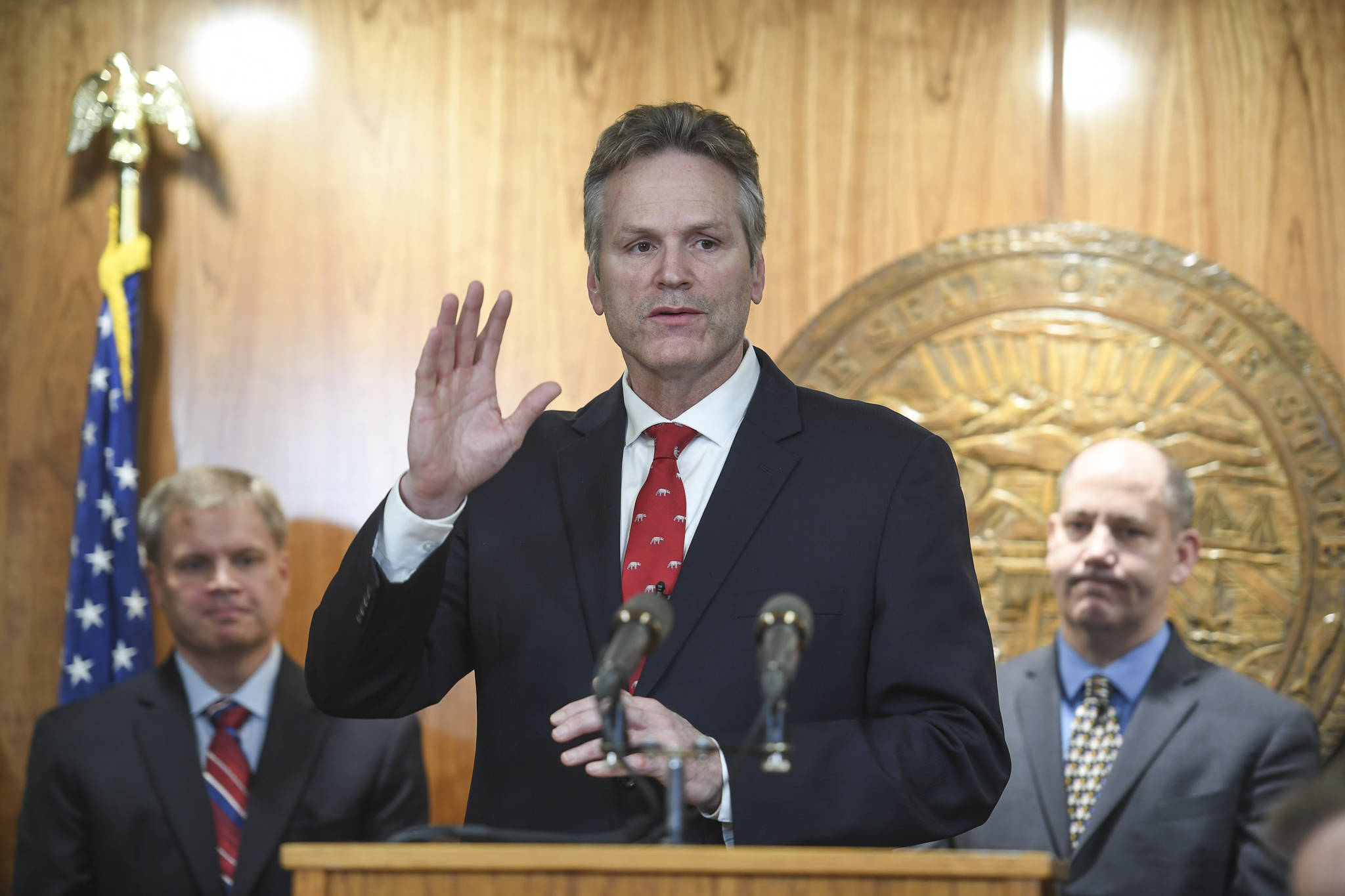Gov. Mike Dunleavy was in Washington, D.C. Monday, speaking at the conservative think tank the Heritage Foundation.
Dunleavy talked about his fiscal plan for Alaska and what the state has to offer to the rest of the nation during a roughly 45-minute speech.
People in the Lower 48, Dunleavy told the crowd, tend to think of Alaska as “a cold place with a lot of oil. It’s true but it’s only a sliver of the real story.”
Alaska is unique, Dunleavy said, in that it’s a place where, “you can open a business complete with all the benefits and protections of a first-world system of governance, America, yet at the same time have access to vast, untapped natural resources that simply don’t exist outside the third world.”
Dunleavy then ran through a brief explanation of the the state’s current fiscal situation, what the governor referred to as a financial meltdown and an unmitigated crisis.
“When some of our state’s big spending politicians decided to ignore (the) warnings, I exercised my vetoes powers to cut $650 million,” Dunleavy said. “It was the largest budget reduction in the state’s history and a critical step in getting Alaska back on track.”
In July, Dunleavy vetoed $409 million coupled with $270 million already approved by the legislature for a total of nearly $680 million in cuts.
“My critics predicted doomsday,” Dunleavy said. “But they couldn’t be more wrong.”
The governor went on to say the state’s recession was coming to an end, and the state’s GDP had increased.
But while state economists agree a recession is ending, they say that process began before Dunleavy took office.
“We’ve been growing since October 2018,” said Dan Robinson, chief of labor research and analysis at the Department of Labor and Workforce Development. Though he added there are parts of the state, such as Anchorage and Southeast which are still having ups and downs.
Robinson also said it’s difficult to identify the cause of what it causing growth or recession because of the high number of contributing factors in an economy. It’s much more natural for an economy to be growing than not growing, Robinson said.
Dunleavy also gave glowing predictions for Alaska’s economic future. The state’s proximity to trade in the Asia Pacific region and natural resources contained a lot of potential for economic growth, Dunealvy said.
But there was still the matter of the state’s finances. Dunleavy maintained he was intent on reining in the state budget, as were Alaskans.
“These aren’t just my priorities,” Dunleavy said in reference to his budget released Dec. 11, “they’re Alaskan priorities.”
Americans are too comfortable will deficit spending, he said, blaming influence from Washington, D.C. for creating a culture to spend when there wasn’t money to do so.
“Eventually the chickens are going to come home to roost in some form or fashion,” Dunleavy said. “I decided that I cared so much about the state that I was willing to tackle these difficult issues.”
• Contact reporter Peter Segall at 523-2228 or psegall@juneauempire.com.

